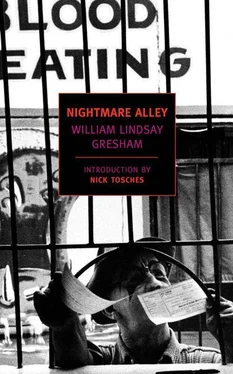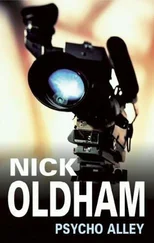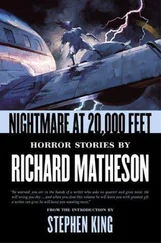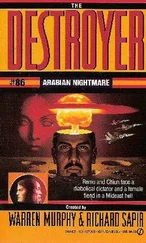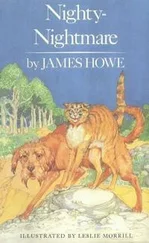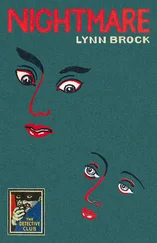Hair thin and sandy. Forehead domed and spattered with freckles. A large rectangle of a face with unobtrusive, petulant features set in the center of it. Habitual lines about the mouth as if etched there by gas pains, or by constantly smelling a faintly foul odor. Voice peevish and high-pitched, bluster on the surface, fear underneath. Afraid somebody will get a dime away from him or a dime’s worth of power. Waistline kept in by golf and a rowing machine. Maybe with shoulder braces to lean against when troubles try to make him stoop like one of his bookkeepers. Hands large, fingers covered with reddish fur. A big, irritable, unsatisfied, guilt-driven, purse-proud, publicity-inflamed dummy -stuffed with thousand dollar bills.
The hand which the Rev. Carlisle raised as a parting gesture was like a benediction-in the best possible taste.
When Stan got back to the apartment it was two o’clock in the afternoon. Molly was still asleep. He jerked the sheet off her and began tickling her in the ribs. She woke up cross and laughing. “Stan, stop it! Oh-oh, honey, it must be good news! What is it?”
“It’s the live One, kid. He’s nibbling at last. Séance tonight out at his joint in Jersey. If it goes over we’re set! If not, we’re in the soup. Now go out and get me a kitten.”
“A what? Stan, you feeling okay?”
“Sure, sure, sure. Fall into some clothes and go out and find me a delicatessen store that has a kitten. Bring it back with you. Never mind if you have to swipe it.”
When she had gone he eased the eraser from the end of a pencil, wedged the pencil in the jamb of a door and bored into the shaft with a hand drill. Then he pushed the eraser back and put the pencil in his pocket.
The kitten was a little tiger tom about three months old.
“Damn, it couldn’t be a white one!”
“But, honey, I didn’t know what you wanted with it.”
“Never mind, kid. You did okay.” He shut himself and the kitten up in the bathroom for half an hour. Then he came out and said to Molly, “Here. Now you can take him back.”
“Take him back? But I promised the man I’d give him a good home. Aw, Stan, I thought we could keep him.” She was winking back tears.
“Okay, okay, kid. Keep him. Do anything you want with him. If this deal goes over I’ll buy you a pedigreed panther.”
He hurried back to the church, and Molly set a saucer of milk on the floor and watched the kitten lap it up. She decided to call him Buster.
“Here’s where the Grindle property starts, sir,” said the chauffeur. They had rolled through Manhattan, under the river with the tunnel walls gleaming, past the smoke of North Jersey and across a desolation of salt marshes. Ahead of them, over a flat waste of cinders and struggling marsh grass, the smokestack and long, glass-roofed buildings of the Grindle Electric Motor Corporation rose glittering in the last sunlight.
The car slowed down at a gate in a barbed fence around the top of which ran wire held by insulators.
The private cop on duty at the gate nodded to the chauffeur and said, “Go right in, Mr. Carlisle. Report at Gatehouse Number Five.”
They drove down a gravel road and came to another wire fence and Gatehouse Number Five. “Have to go in and register, sir,” said the chauffeur.
Inside the concrete shack a man in a gray military shirt, a Sam Browne belt and a dark blue cap, was sitting at a desk. He was reading a tabloid; when he looked up Stan read his life history from the face: Thrown off some small city police force for excessive brutality; or caught in a shakedown and sent up-the face bore the marks of the squad room and the prison, one on top of the other.
“Carlisle? Waiting for you. Sign this card.” It projected from a machine like a cash register. Stan signed. Then the cop said, “Pull the card out.” Stan grasped its waxed surface and pulled. “Watch out-don’t tear it. Better use both hands.”
The Rev. Carlisle used both hands. But what was it all about? He handed the card to Thickneck, then realized that he had left them a record of his fingerprints on its waxed surface.
“Now step inside here and I’ll go through the regulations.”
It was a small dressing room.
“Take off your coat and hand it to me.”
“May I ask what this is for?”
“Orders of Mr. Anderson, Head of Plant Security.”
“Does Mr. Grindle know about this?”
“Search me, Reverend; you can ask him. Now give me your coat. Anderson is tightening up on regulations lately.”
“But what are you searching for?”
Stumpy fingers felt in pockets and along seams. “Sabotage, Reverend. Nothing personal. The next guy might be a senator, but we’d have to frisk him.” The examination included the Rev. Carlisle’s shoes, his hatband and the contents of his wallet. As the cop was returning the vest a pencil fell out; he picked it up and handed it to the clergyman who stuck it in his pocket. On his way out Stan gave the cop a cigar. It was immediately locked up in the green metal desk, and the Great Stanton wondered if it was later tagged, “Bribe offered by the Rev. Stanton Carlisle. Exhibit A.”
At the door of the plant a thin, quick-moving man of thirty-odd with black patent-leather hair stepped out and introduced himself. “My name’s Anderson, Mr. Carlisle. Head of Plant Security.” The left lapel of his blue serge suit bulged ever so slightly. “The committee is waiting for you.”
Elevators. Corridors. Plaster walls pale green. A white spot painted on the floor in all the corners. “They’ll never spit in a corner painted white.” The hum of machines and the clank of yard engines outside. Then one glass-paneled door opening on a passage walled with oak. Carpets on the floor. The reception room belonged in an advertising agency; it was a sudden burst of smooth, tawny leather and chrome.
“This way, Mr. Carlisle.”
Anderson went ahead, holding open doors. The directors’ room was a long one with a glass roof but no windows. The table down its center must have been built there; certainly it could never be taken out now.
Grindle was shaking his hand and presenting him to the others: Dr. Downes, plant physician; Mr. Elrood of the legal staff; Dr. Gilchrist, the industrial psychologist, also on the plant staff; Professor Dennison, who taught philosophy at Grindle College; Mr. Prescott (“You know Mrs. Prescott, I believe, through the church.”) and Mr. Roy, both directors of the company. With Anderson and Grindle they made eight-Daniel Douglas Home’s traditional number for a séance. Grindle knew more than he let on. But didn’t his kind always?
At the far end of the table-it seemed a city block away-stood a rectangular glass case a foot high; inside it was an apothecary’s precision balance, a cross arm with two circular pans suspended from it by chains.
Grindle was saying, “Would you care to freshen up a little? I have an apartment right off this room where I stay when I’m working late.”
It was furnished much like Lilith’s waiting room. Stan shut the bathroom door and washed sweat from his palms. “If I get away with it this time,” he whispered to the mirror, “it’s the Great Stanton and no mistake. Talk about your Princeton audiences…”
One last look around the drawing room revealed a flowing cloud of blue fur, out of which shone eyes of bright yellow as the cat streamed down from a chair and floated along the floor toward him. Stan’s forehead smoothed out. “Come to papa, baby. Now it’s in the bag.”
When he joined the committtee he was carrying the cat in his arms and Grindle smiled his tight, unpracticed smile. “I see you’ve made friends with Beauty. But won’t she disturb you?”
“On the contrary. I’d like to have her stay. And now, perhaps you gentlemen will tell me what this interesting apparatus is and how it works.” He dropped the cat gently to the carpet, where she tapped his leg once with her paw, demanding to be taken up again, then crawled under the table to sulk.
Читать дальше
